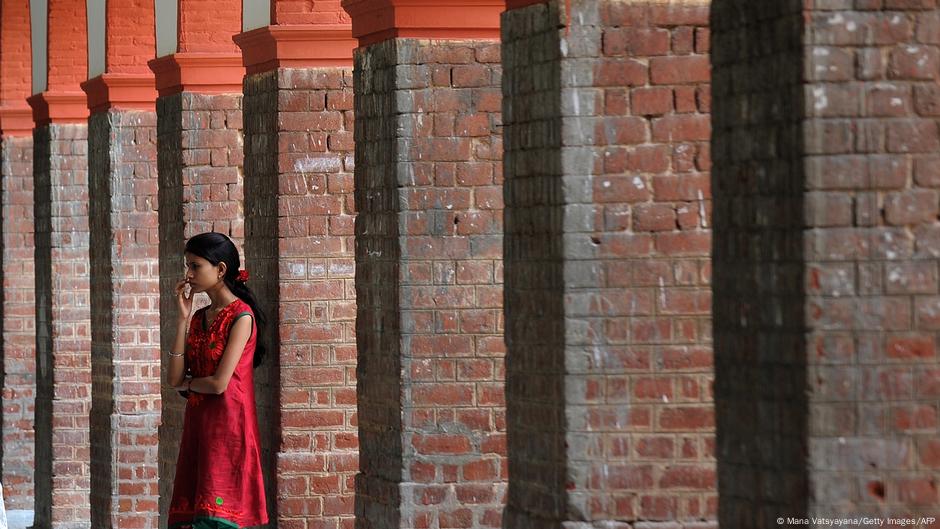Mental health experts have emphasized the need for additional support initiatives on university campuses amid a concerning rise in student suicides. Approximately 13,000 students take their own lives in India annually.
Student suicides have become a concerning issue in India, with students accounting for 7.6% of the nation’s overall suicide deaths, as per a newly published report from the National Crime Records Bureau.
The study, based on the latest available data from 2022, indicated that approximately 13,000 students lose their lives to suicide annually in India. Official statistics for suicides in 2023 and 2024 are still pending release.
Studies and official publications indicate a mix ofacademic and social stress, and insufficient institutional support and understanding, as contributing factors.
“I view these numbers as more than just statistics; they represent indicators of hidden distress that lie beneath societal standards and pressures,” said Anjali Nagpal, a neuropsychiatrist who has extensively researched the topic.
“I have noticed that kids aren’t taught how to deal with failure, sadness, or unpredictability. We get them ready for tests, not for real life,” she said.
“Mental health education should be an ongoing component of school activities, rather than just occasional sessions. Students require a safe environment to express themselves and feel understood. Educators need to be equipped to listen, rather than simply deliver information,” Nagpal stated.
Demand increases for mental health assistance
On Monday, India’s Minister of State for Education, Sukanta Majumdar, presented the report’s results during a parliamentary session.
The authorities admitted that even with various educational changes and fresh mental health programs, “severe academic stress” still impacts students who are at risk.
Majumdar explained that the government is taking a comprehensive approach to tackle the problem, such as offering mental health assistance to students, educators, and households via different initiatives.
Nelson Vinod Moses, the head of the Suicide Prevention India Foundation, stated that ongoing “toxic competition,” along with strict grading methods and insufficient mental health resources are key reasons behind student suicides.
“A hidden crisis is driving numerous individuals to their limits. It appears there is a growing sense of worry and suspicion within India’s education system,” Moses stated.
In his view, college advisors should receive training in suicide identification, risk evaluation and treatment, as well as supporting students who are vulnerable.
“We are determined to prevent young lives from being sadly lost, which is why universities should implement programs on emotional intelligence, life skills, stress management, and suicide prevention. Training students and staff to recognize warning signs is crucial,” he added.
“Support systems” required for at-risk students
A 2019 research project focusing on suicides among Indian university students, conducted by scholars from Australia’s University of Melbourne, India’s National Institute of Mental Health and Neurosciences, and various Indian medical institutions, aimed to investigate the prevalence of mental health challenges.
Including more than 8,500 students from 30 universities in nine Indian states, the survey revealed that over 12% of participants had faced suicidal thoughts within the last year, while 6.7% had made a suicide attempt at some stage in their life.
The research highlighted the critical importance of implementing mental health programs and supportive strategies in schools to tackle this escalating issue.
India’s Supreme Court, which has referred to the situation as a “suicide epidemic,” established a 10-member national task force in March.
The team is currently involved in extensive inquiries, discussions, and organizational assessments, with the goal of presenting a detailed policy framework.
Maheshwer Peri, the founder and CEO of Careers360, an education technology company offering detailed career advice and exam preparation services, stated that numerous young Indians face significant pressure to achieve success.
“It’s regrettable that a student is occasionally evaluated based on one day’s performance in a competitive exam, leading some to consider ending their lives. We must establish support systems for students,” Peri stated.
Many of these students lack adequate support networks and study alone. There is a critical requirement for enhanced and combined mental health services designed according to students’ specific needs.
Achal Bhagat, a psychiatrist based in Delhi with more than three decades of professional experience, mentioned that a limited understanding of success, gender inequality, and violence, along withinsufficient job prospectsall play a role in causing mental health issues among students.
“You are either a failure or a genius. The systems that control society and its institutions are rigid and do not communicate with the youth. This feeling of powerlessness and despair then leads to a tragic loss,” Bhagat said.
In my view, the key components of a solution involve the involvement of youth in shaping their own future decisions, guidance through mentorship, and creating visible role models that expand the concept of success.
If you are experiencing significant emotional stress or have thoughts of suicide, don’t wait to reach out for professional support. You can discover resources on where to get assistance, regardless of your location around the globe, on this website:https://www.befrienders.org
Edited by: Wesley Rahn
Author: Murali Krishnan (based in New Delhi)






